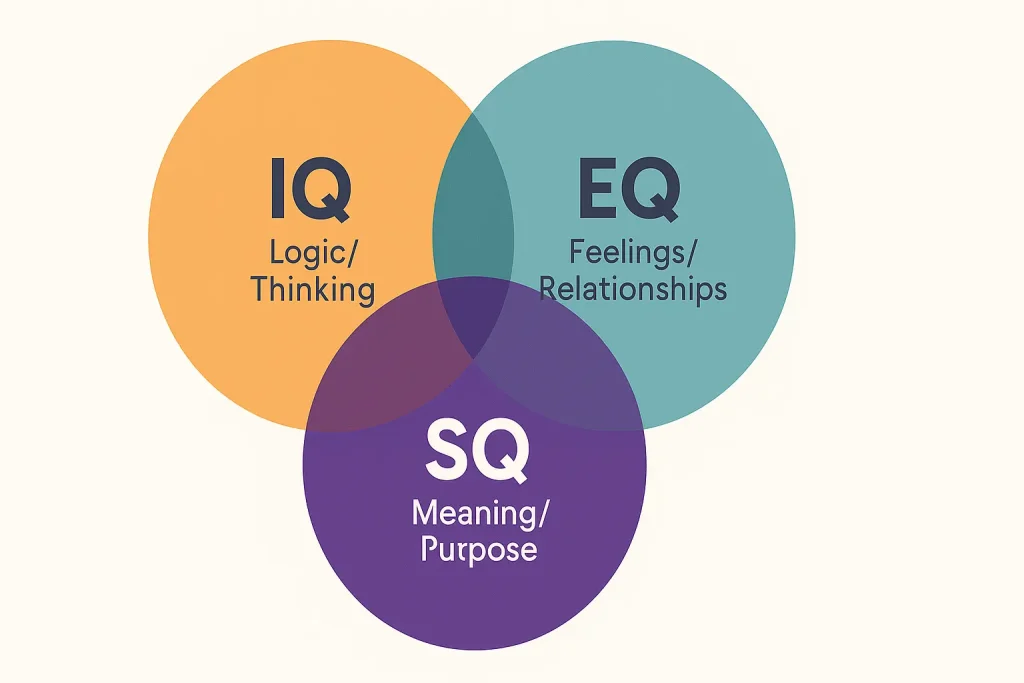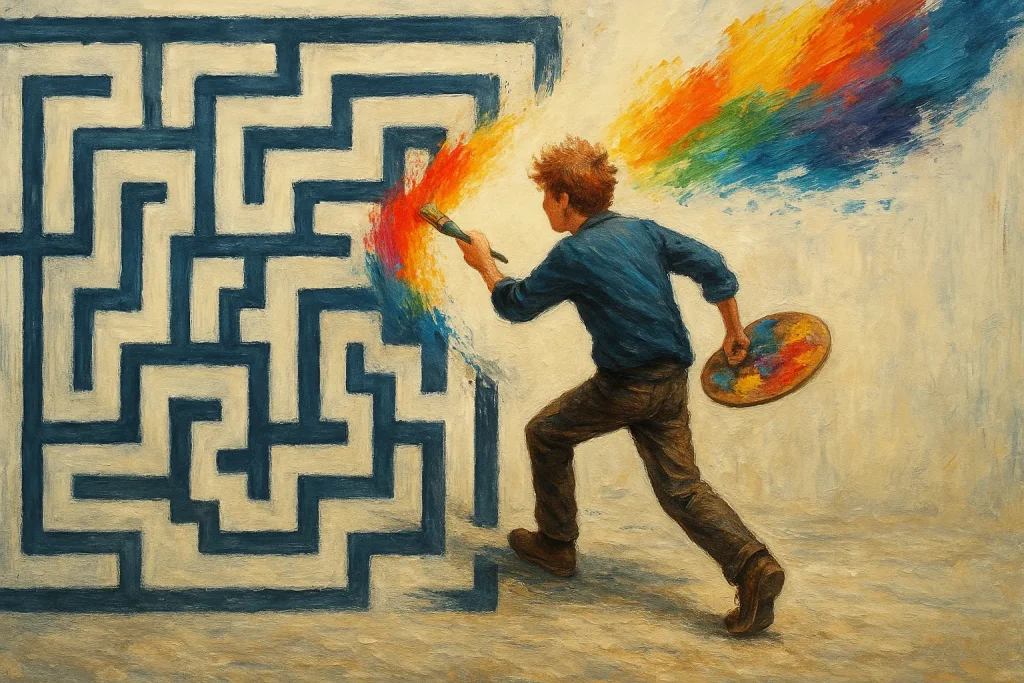
For most of the twentieth century, IQ—rational intelligence—was considered the ultimate measure of human capability. It measured logical reasoning, problem-solving, and intellectual capacity. Then, in the 1990s, Daniel Goleman introduced the world to EQ, emotional intelligence, showing that understanding and managing emotions was as essential as raw intellect. EQ, in many ways, was the missing link: it allowed IQ to function effectively in real life.
But researchers now point to a third dimension—Spiritual Quotient (SQ). Unlike IQ or EQ, SQ is not about what we know or how we feel. It is the intelligence with which we ask deeper questions of meaning and value: Why am I here? What is worth doing? Which path gives my life purpose?
Table of Contents
ToggleSQ: Beyond IQ and EQ

Where EQ allows us to judge a situation and act appropriately, SQ allows us to step back and ask if we even want to be in that situation at all—or whether we’d rather change it entirely.
Zohar and Marshall argue that SQ is the foundation of both IQ and EQ. Without it, Western psychology has essentially left a hole at the centre of the self. Traditional models only considered the conscious ego (IQ) and the unconscious mind (EQ). SQ adds a third, central layer: the unifying core.
This central intelligence isn’t tied to religion. In fact, one can be religious but spiritually stunted, or non-religious yet highly spiritually intelligent. SQ is the soul’s intelligence—the capacity to make ourselves whole.
The Science of SQ
In the 1990s, neurologists discovered what they call the “God spot” in the temporal lobes of the brain. This area activates during discussions of spiritual topics. At the same time, neuroscientists identified a process that binds together our diverse experiences into a coherent whole—the so-called “binding problem.”
Research by Singer and others showed synchronous 40 Hz oscillations across the brain, visible during meditation and moments of heightened awareness. These oscillations unify our perceptions and are thought to be the neurological basis of SQ.
Thus, IQ corresponds to serial neural connections (step-by-step thinking), EQ to parallel neural networks (pattern-recognition and emotion), and SQ to synchronous oscillations—a deeper, integrative process.
Signs of High SQ
People with developed SQ show qualities that go beyond intelligence or empathy. They often display:
- Flexibility and self-awareness
- The ability to face pain and suffering and transcend them
- Living with vision and values
- Reluctance to cause unnecessary harm
- Creativity, spontaneity, and a tendency to ask “Why?” or “What if?”
- A servant-leader mindset
These are not just traits of survival, but of transformation.
A Spiritually Dumb Culture
Collectively, our modern society scores low on SQ. We live in what Zohar calls a “spiritually dumb culture,” dominated by materialism, expediency, and self-centredness. Meaning and commitment are scarce, and people often feel empty despite outward success.
Yet the hope lies in this: SQ can be raised by individuals. By asking deeper questions, embracing suffering, and anchoring life in values, anyone can cultivate spiritual intelligence and begin to live with greater wholeness.
👉 In the next blog, we’ll explore why SQ is not just desirable but necessary—because our world today faces a deep crisis of meaning.





